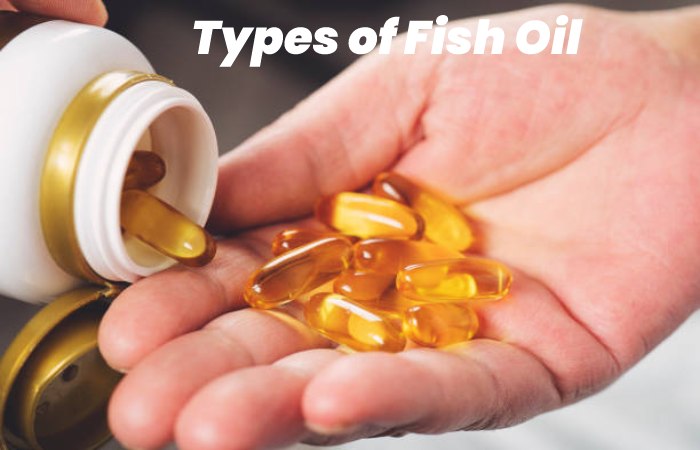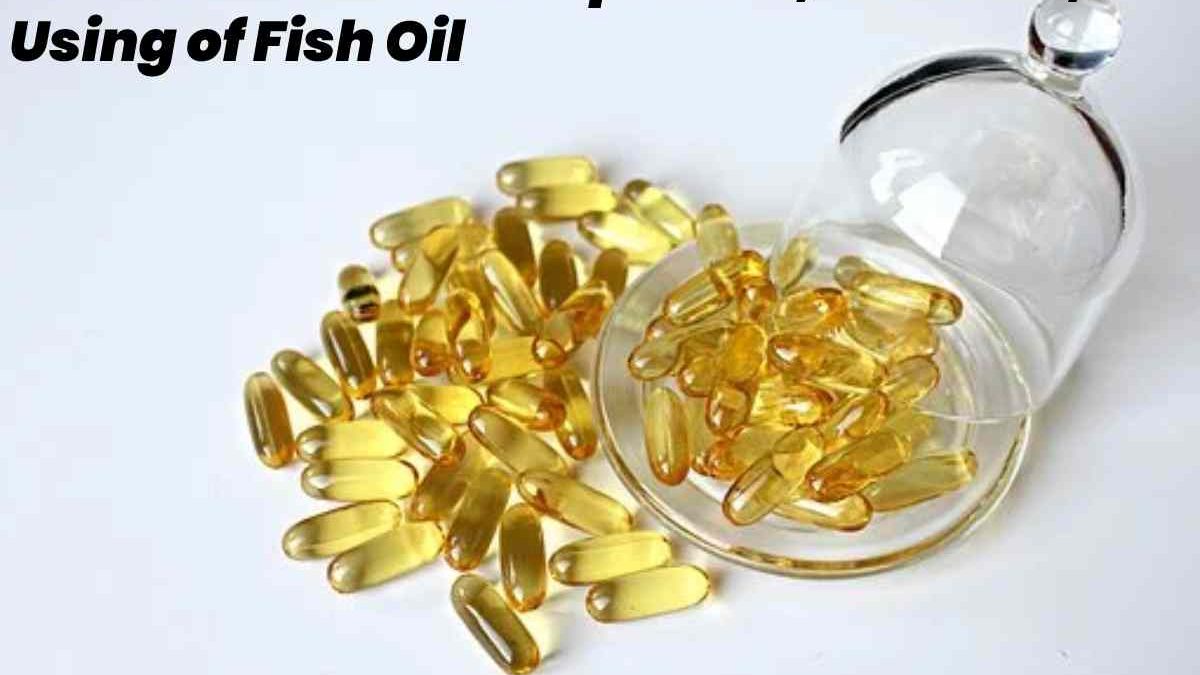Table of Contents
What is Fish Oil?
The popularity of intense fish oil is due to its high happy omega 3, a fatty acid that protects cardiovascular health. It is a widely consumed dietary supplement worldwide, just behind vitamins and minerals. However, there is a significant disparity of opinions about the properties and benefits of fish oil in our health. Likewise, there are notable discrepancies between theoretical studies and clinical trials. It should be painstaking a dietary supplement and never as a substitute for any food or as a medicine in itself.
Properties of Fish Oil
Surprising properties are attributed to fish oil, especially if consumed directly, including the consumption of oily fish in our diet at least twice a week. The properties of this food supplement are due to its composition. These are the main components of fish oil:
The high content of omega 3 and omega 6.
- Eicosapentaenoic acid (EPA).
- Docosahexaenoic acid (DHA).
- Vitamins A, B, C, E and D.
In addition, in the case of dietary supplements in capsules, the vitamin content is usually increased. In some cases, some minerals are added, such as zinc, iron and magnesium.
Thus, thanks to this nutritional composition, these are the main properties of fish oil:
- Cardioprotective
- Anti-inflammatory
- Hypotensive
- Anticoagulant
- Lipid-lowering
- Skin hydration
- Healing
- Stimulates the defences
Learn more about the properties of cod oil in this other how-to article since this is one of the most common fish from which it is extracted.
Benefits of Fish Oil
The benefits of fish oil are varied, mainly thanks to the omega fatty acids, EPA and DHA. Thus, fish oil is attributed, among others, the following benefits:
- Reduces the possibility of heart disease.
- Reduces the risk of suffering from illnesses related to the coronary arteries.
- It improves the general health of the heart and prevents alterations in its rhythm.
- By lowering blood pressure, it helps regulate hypertension.
- It helps in the prevention of thrombosis, embolisms and strokes.
- Improves joint stiffness in diseases such as arthritis and rheumatism.
It has an anti-inflammatory effect, so it helps reduce internal inflammation when taken and on the skin or external when applied to it.
- Helps reduce harmful cholesterol levels.
- Helps reduce triglyceride levels.
- It is beneficial to help balance blood glucose (diabetes).
- Its high oleic content favors the hydration of the skin and other tissues.
- Its topical application improves skin conditions, such as eczema and psoriasis, and facilitates healing.
- Improves the appearance of skin and hair.
It helps improve the immune system; that is, it stimulates the defences, so it is used to prevent conditions, such as colds, and to facilitate the effect of some medical treatments.
Types of Fish Oil

More and more persons are rising in favour of ingesting natural crops. In this sense, fish oil has increased great approval in recent years due to the incredible benefits it produces for health. In recent years its consumption has been on the rise, and it is an excellent source of Omega 3 fatty acids Epa and DHA, which produce numerous benefits for the heart, brain, eyes and joints.
Heart
According to Natural Standard, there is technical evidence that Omega 3 fatty acids reduce mortality from cardiovascular disease, an international research entity on other medicine. For this reason, the daily consumption of these acids associated with avoiding heart failure. Though, fish oil cannot be consumed every day. It is also accurate in lowering triglyceride levels, often associated with coronary artery disease and diabetes. Fish oil also helps reduce the progress of plaque in the arteries, reduce the risk of heart rhythm disturbances, and prevent possible cardiac arrest.
Blood pressure
The Omega greasy acid in fish oil promotes the growth of blood vessels, which lowers blood pressure. In addition, particularly in people who suffer from hypertension, it typically helps to lower blood pressure.
Cholesterol
It slightly slows the advancement of atherosclerosis in the arteries responsible for supplying blood to the heart and lowers cholesterol by preventing absorption in the intestine. Especially if paid together with vitamin B12, it is an excellent ally for lowering cholesterol.
Brain
It is an outstanding resource to combat unhappiness, psychosis, Alzheimer’s, and schizophrenia mainly because it helps maintain the function of dopamine and serotonin, the two hormones that, according to experts, play an essential role in developing some of the conditions above. On the other hand, it is also helpful to ease care deficit disorder and hyperactivity., however always before consulting a doctor.
Skin
It is ideal for civilising dry skin and giving various problems such as eczema, psoriasis, itching, acne, skin redness and rashes. The components of Omega 3 block the publication of enzymes induced by ultraviolet rays and help maintain the skin’s cellular function in the excellent complaint, so smearing fish oil on wrinkles rehydrates the skin. In short, it is an outstanding natural product that you can take either through fish or from natural supplements, obtaining endless benefits for hair, against allergies, losing weight, and preventing eye diseases, along with those previously mentioned.
The Two Faces of Fish Oil

Despite the above benefits, excessive and inadequate consumption of fish oil may present specific contraindications unless the patient requires that additional intake for health reasons; the recommended amount should never exceed 500 milligrams per day. The reason? Its possible side effects.
Several studies assure that taking too much fish oil can be harmful if you follow a treatment with anticoagulants since this ingredient inhibits coagulation, which would double the effect of the drugs. In turn, this can trigger bleeding gums and nose.
“Omega 3 is a polyunsaturated fatty acid. Omega 3 fatty acids are very sensitive to oxidative damage, so when fat particles undergo this process they break down into compounds that damage some of the most important cell structures. And these are very susceptible to deterioration (oxidation by temperature, light and oxygen) if they handle correctly.
How to Take Fish Oil?
The most effective way to take fish oil is by incorporating the consumption of oily fish into our diet at least twice a week. Another way to consume fish oil is through dietary supplements obtained at any pharmacy.
You can find fish oil capsules with different concentration levels. There are also formulations made from different fish types and other added ingredients, such as vitamin complexes.
You can buy fish oil in a dark or brown glass bottle or jar since prolonged exposure to light spoils it. In this case, generally, you take a daily spoonful, up to a maximum of 3, either directly or mixed with other foods.
Contraindications of Fish Oil
There are few contraindications to fish oil. Among those who should not take it, at least without the control of a doctor who prescribes it, we find:
- Those who cannot consume fish due to an intolerance or allergy problem.
- Those are taking anticoagulant medications.
- People who take drugs to lower cholesterol.
- Patients are taking blood pressure medications.
- It is always sensible to consult a skilful before including any supplement in our diet in any case.
Conclusion
Fish oils overload with omega-3 fatty acids. The most communal omega-3 fatty acids call DHA and EPA. Our bodies cannot make omega-3s, so they must come from our diet. The amount of omega-3 fatty acids you should take daily is unknown. A minimum of 250-500 mg of DHA and EPA recommend for healthy adults, but higher amounts recommend for specific health environments. Patients with coronary artery illness should take at least 1,000 mg per day. Patients with high triglyceride levels may benefit from 2,000-4,000mg per day.
Fatty fish (such as salmon or tuna) and shellfish (such as oysters or crab) are full of these omega-3 fatty acids. Some plants encompass other omega-3 fatty acids that our bodies can convert to DHA and EPA.
Also Read: What is Apple Cider Vinegar? – Differences, Benefits and Uses


